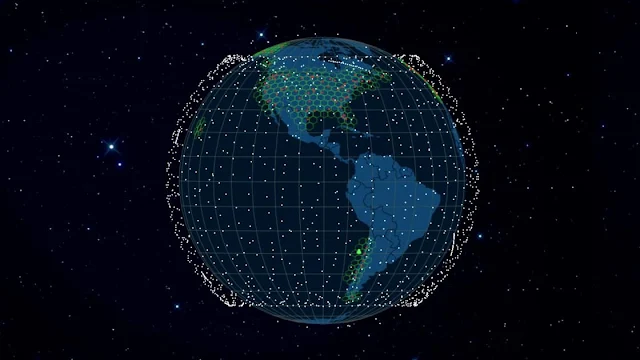Viasat, in an attempt to impede SpaceX's plans for a second-generation Starlink network, is citing environmental concerns and requesting an investigation from the FCC.
Viasat petitioned the FCC to begin a federal environmental evaluation of the second-generation Starlink network on Monday, citing concerns that the 30,000-satellite internet network will pollute the night sky. According to the petition, "Viasat has further proven that this light pollution would have substantial aesthetic, scientific, social and cultural, and health consequences on the human environment on Earth."
SpaceX is already striving to avoid light pollution from its Starlink network from photobombing astronomical photographs. Viasat, on the other hand, says that the second-generation network still poses a "substantial" danger of increased light pollution.
"There is significant evidence—including independent expert analysis—of Starlink activities' unfavorable, continuous, and rising impact on the night sky," the corporation notes.
The filing refers to research
in Nature Astronomy as well as NASA's fears that the Starlink satellites' light may interfere with telescopes and the detection of near-Earth asteroids.
"There is little question that the planned Starlink extension would have a substantial environmental impact,' necessitating additional environmental evaluation under NEPA and Section 1.1307 of the Commission's regulations," Viasat continues.
Viasat's latest complaint is just one of many that SpaceX's rivals have leveled against the second-generation Starlink network, which has been seeking FCC certification for the past year. Amazon, for example, has claimed that the second-generation network will interfere with Project Kuiper, its own planned satellite network.
The competition has resulted in some acrimonious back-and-forth between the corporations. In February, SpaceX accused Viasat of attempting to circumvent FCC regulations in order to acquire access to Starlink's secret designs.
It isn't the first time that Viasat has used environmental concerns to derail Starlink. It tried to do the same thing last year in an attempt to halt satellite launches, but Viasat's plea was refused by a US appellate court.


